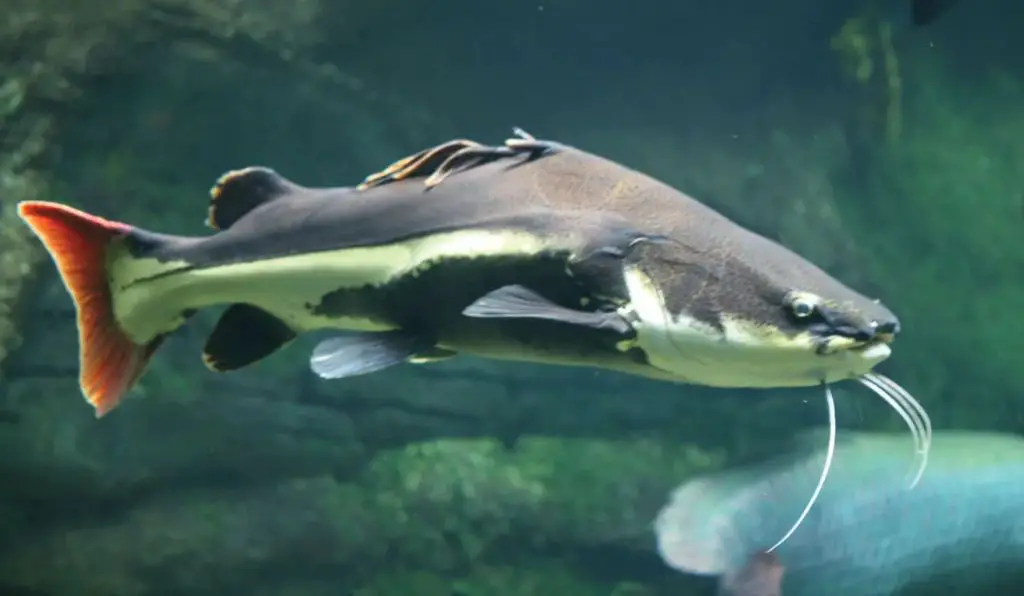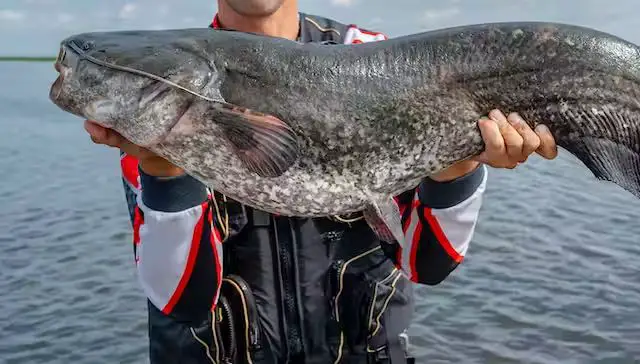Catfishing refers to the practice of creating a fake online identity or profile to deceive someone, often for romance or fraud. The term originated from the 2010 documentary film Catfish, which followed photographer Nev Schulman as he developed an online relationship with a woman who was not who she presented herself to be.
The term “catfish” comes from fishermen putting catfish in tanks with cod to keep them active and healthy for transport. Like real catfishstimulating the larger cod, catfishing online involves creating a fictional persona to engage others. The documentary popularized the concept, showing how determining the true identity of someone met online can be difficult.
Catfishing involves establishing an online profile with photos and biographical details that do not reflect the actual person behind it. Catfishers often targeting dating sites or social networks to find unsuspecting marks and fabricate intricate stories to maintain their fake identities. The practice raises important questions around trust and deception in online spaces.
Source: https://www.tiktok.com/@porkchop_pete/video/7241008257945406762
Origins from the 2010 documentary
The term “catfishing” originated in 2010 from the documentary film Catfish, directed by Henry Joost and Ariel Schulman. The film follows Nev Schulman, a New York photographer who builds a romantic online relationship with a woman named Megan. Over the course of filming, Nev discovers that Megan is actually a fake persona created by Angela Wesselman, a middle-aged wife and mother living in Michigan. Angela had been using fake social media profiles and stolen photos to deceive Nev in an elaborate catfishing scheme.
The documentary captured Nev’s experience of being catfished by Angela for over eight months. They communicated daily through Facebook chats, emails, and phone calls, with Angela sending Nev paintings and songs supposedly created by Megan. Nev believed he was developing a genuine connection until he uncovered Angela’s lies. The film highlighted the dangers of dishonesty in online relationships, bringing the concept of catfishing into mainstream awareness.

Released in 2010 at the Sundance Film Festival, Catfish generated much discussion and debate about authenticity in the digital age. The film was a surprise hit, earning over $3 million at the box office. Propelled by its buzzworthy premise and marketing campaign styled like a horror movie, Catfish popularized the term and publicized this modern form of deception.
Citations:
Meaning of the term
The term “catfishing” refers to the practice of creating a fictional online identity, typically with the intention of luring someone into a deceptive romantic relationship. According to Merriam-Webster dictionary, to “catfish” means “to deceive someone by creating a false personal profile online.”1 The central aspect of catfishing is assuming a fake identity, then using that pretend persona to interact with others online, often in online dating communities or social media.
A catfish will use someone else’s photos, biographical details, and life stories as their own. They fabricate entire personas and social media profiles designed to dupe unsuspecting people into thinking they are someone they are not. The catfish does this in order to cultivate relationships, frequently of a romantic nature, with the targeted victim. The main motivations tend to be loneliness, attention seeking, or as part of a scam or deception. Catfishing involves continuous lying about one’s true identity and life details.
The goal is to lure the victim into an emotional bond or romantic relationship before eventually revealing their actual identity. This revelation, called “the reveal”, often comes after months or years of building up trust and attachment. The deception fundamentally damages the legitimacy of the relationship. While not always done with malicious intent, catfishing nevertheless involves fundamental dishonesty, pretense, and taking advantage of people’s vulnerabilities.
Catfish as a Metaphor
The term “catfish” is used as a metaphor to describe a type of deceptive online behavior. This metaphor originates from the 2010 documentary film Catfish, which popularized the concept.
In the film, photographers Angela Wesselman and Vince Pierce refer to the concept of catfishing. Catfish live on the bottom of rivers, lakes, and ponds. They are scavengers that feed on debris that falls to the bottom. As Angela describes it, fishermen used to put catfish in tanks with cod to keep the cod active and give them exercise. Catfish would lie still on the bottom and allow the cod to swim around it. However, when hungry, the catfish would chase and feed on the cod.

This metaphor was used to describe Angela’s husband Vince’s online relationship with Megan, who had created a fake online identity to deceive him. Like the catfish lying still but deceiving the cod, Megan had created a fake persona online to develop a relationship with Vince. Her actual identity was very different.
The metaphor of catfishing has stuck when referring to deceptive online behavior where people create fake personas and identities, often to pursue online romantic relationships. Just as catfish are bottom-dwelling scavengers who lie in wait, online catfish create fake profiles to lure in unsuspecting victims.
Prevalence of Catfishing
Catfishing scams are quite common, especially as more people turn to online dating and social media. According to one report, catfishing fraud accounted for $32.9 million in losses in 2019, rising to $141.8 million just two years later [1]. Another study found that 20% of men admitted to being catfished more than five times, and 22% of people have sent explicit photos to someone they later learned was a catfish [2].
Catfishing scams target people of all ages, from 18 to 70+, with every demographic group affected. However, the average catfishing scam victim over 70 lost over $30,000 according to one report [3]. The motivations behind catfishing vary, but often involve seeking attention, companionship, revenge, or financial gain.
Psychology behind catfishing
Catfishing is often driven by underlying psychological factors that compel someone to create a false identity. According to research from Discover Magazine, loneliness is a major motivator for catfishing. People who feel socially isolated may create an online persona to fulfill their emotional need for connection. The deception allows them to present an idealized version of themselves to form relationships.
Other mental health issues can also contribute to catfishing behavior. A 2023 study published in Personality and Individual Differences found that catfishers tend to exhibit higher levels of psychopathy, narcissism, and sadism according to The Conversation. These anti-social tendencies lead some individuals to manipulate and deceive others online. The false identity allows them to feed their need for control, status, or harming others.
In many cases, the deception starts small but grows over time. What begins as exaggerated details to seem more attractive or interesting can spiral into a completely fabricated persona. Mental health professionals recommend addressing the root psychological causes that motivate harmful catfishing behavior through counseling and treatment.
Developing an online relationship
Catfish relationships often start innocently through online dating sites or social media platforms. The catfish initiates contact, builds rapport, and gains the victim’s trust over weeks or months. According to one source, “Catfishers employ what victims have called ‘relationship mathematics’—they form bonds by learning everything they can about their targets, and then mirror their lives and personalities.”1 They excel at being charming, flattering, affectionate, and making their victims feel special.
To build intimacy, catfishers engage in constant communication via chat, texting, or phone calls. They ask penetrating questions and share vulnerable stories to create the illusion of a deep connection. They also express strong emotions like love very quickly into the relationship. One psychologist notes “This manipulation of intimacy accelerates the dating process, moving the relationship faster than usual.”2
To maintain the deception, catfishers avoid video chatting or meeting in person, coming up with endless excuses. They will send real photos but portray them as their own. Many victims realizing something is amiss still become attached to the catfisher’s persona and continue the dysfunctional relationship.
Revealing the truth
Many catfishing situations end when the catfish confesses or gets caught in a lie. As seen in episodes of the MTV show Catfish, the catfish may feel guilty about deceiving someone and finally come clean (Catfish Reveals). Other times, the victim starts questioning inconsistencies in the catfish’s story and confronts them. The catfish is then forced to reveal their true identity.

Being caught in a catfishing scheme can be emotionally devastating for both sides. The catfish may have started the deception as a cry for attention or to escape their daily lives. Getting exposed can lead to deep shame. Meanwhile, the victim feels betrayed and manipulated once learning the truth.
Confronting a catfish allows the victim to gain closure and move on. But it can also lead to renewed understanding if both people discuss the reasons behind the catfishing. Some even choose to continue the relationship. Overall, revealing the truth ends the deception, though the effects may linger.
Impact on Victims
Being catfished can have a severe emotional impact on victims. When someone believes they are developing a genuine relationship only to find out the other person has completely misrepresented themselves, it can lead to feelings of hurt, embarrassment, and trauma (https://www.cybersmile.org/what-we-do/advice-help/catfishing). Victims may feel they have wasted significant time, money, and emotional energy on the fictitious relationship. According to one source, “When someone is catfished, it can be extremely damaging to their mental health – especially if they are emotionally invested in a friendship or romantic relationship that turns out to be a scam” (https://bulliesout.com/need-support/catfishing/).
In addition to the emotional impact, catfishing often results in lost money. Catfishers frequently ask for financial assistance from their victims. Victims of romance scams report losing an average of $2,600 as a result of these scams (https://www.ftc.gov/news-events/data-visualizations/data-spotlight/2022/02/reports-romance-scams-hit-record-highs-2021). This lost money can represent a significant hardship.
Finally, being catfished can severely damage a victim’s ability to trust in future relationships. Once their trust has been violated in such an egregious manner, victims may struggle to open up to or rely on others again. According to psychologists, “Our brains have set paths that help us to operate, with trust and love strengthening these paths. When that trust is broken, our paths fade and we struggle to connect in the same ways again” (https://www.bustle.com/wellness/catfish-effect-brain-psychology). This damage to trust can be one of the most traumatizing and lasting impacts of catfishing.

Preventing catfishing
Here are some steps you can take to avoid being catfished:
Verify the person’s identity. Do a reverse image search on their profile pictures to see if they come up anywhere else online. You can also look up their name, phone number, email, social media accounts etc. to check if they match up. According to PCMag, examine photos closely for signs of editing and inspect background details that may reveal inconsistencies (https://www.pcmag.com/how-to/how-to-avoid-getting-catfished).
Take things slow when getting to know someone online. Don’t rush into an intensive emotional relationship before thoroughly vetting the person. According to Seersco, be wary of quickly deepening connections and overeager romantic interests (https://seersco.com/blogs/the-5-most-effective-ways-to-avoid-social-catfishing/).
Watch for suspicious behaviors like refusing to video chat, dodging personal questions, making excuses for why they can’t meet, asking for money etc. Malwarebytes suggests being skeptical of particularly attractive online admirers and sob stories designed to pull at your heartstrings (https://www.malwarebytes.com/blog/news/2022/06/5-ways-to-avoid-being-catfished).
Trust your instincts. If something feels off, take steps to investigate further or cut off contact. Don’t ignore red flags just because you want the relationship to be true.
Limit how much personal information you share until you’ve confirmed someone is who they claim to be. Dishonest people can use details shared against you.
Lean on friends for outside perspectives on new online relationships. They may spot concerning behaviors you miss when emotionally invested.
Take precautions like looking up numbers that call you, searching usernames and being careful when clicking links to avoid technical manipulation.
Ultimately, vet people thoroughly and listen to your intuition. Take your time so you don’t get caught off guard by a catfish.
